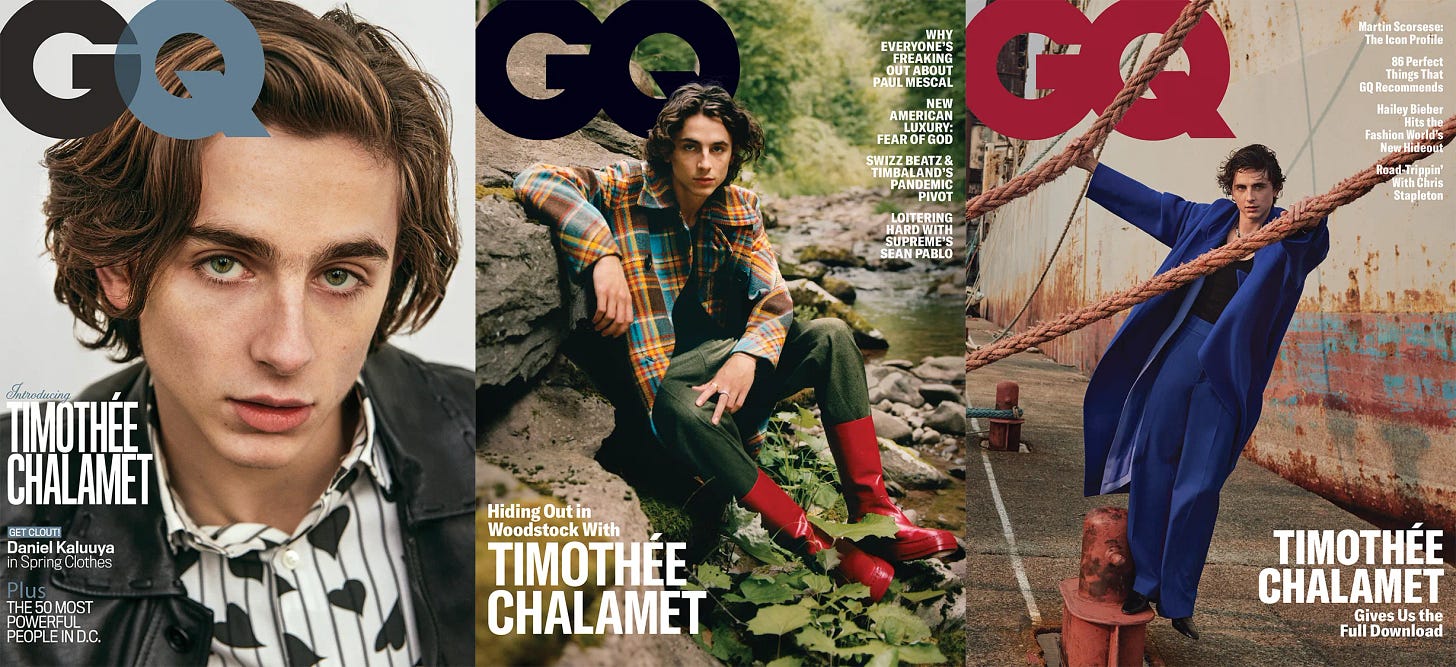Wow! It’s been another long break, apologies to my hoards of unrelenting and rabid followers and fans and lovers. The transition out of the summer and into Oxford(!), where I’ll be for the foreseeable future, has taken its own toll – but this is a town that inspires writing (or perhaps preaching). So with that, The Kino is back!
Who comes to mind when you hear the term ‘movie star’? Harrison Ford? Leonardo DiCaprio? Denzel Washington? Meryl Streep? Julia Roberts? Tom Hanks?
These are the greats, the faces that not only accompany film history but punctuate it as well. There are plenty of similarities between the aforementioned and the other stars you may think of, but here’s the one that sticks out the most – these people are old. It begs the question, who’s next? Is the movie star dead? To answer that, we ask first, what defines a movie star?
Stardom for Dummies
At a baseline, we can agree that movie stars are famous, but not all famous people are movie-stars. It’s the nature of that fame, and the outcomes it drives for their work, that creates true stardom.
For the greatest movie stars, their name and face is all it takes to corral an audience. It’s when the film is defined by their very presence as a leading role. My parents will watch a Tom Hanks or a Shah-Rukh Khan movie no matter what. You hear it in the talk alone – Are you watching the new George Clooney movie? The new Sandra Bullock flick?

Their stardom is the defining quality of the movie – it supersedes all else: Quality, the film’s involvement in a franchise, the director, everything. From a financial perspective, their stardom alone can guarantee a box office result.
Mascot Costumes
This might seem self-evident, but outside of a few big name actors, I don’t think this exists today. You might argue that certain actors – Chris Evans, Tom Holland, Robert Downey Jr. – can turn out an audience by name alone. But what distinguishes the movie-stars of old from these people is that it was their presence as an actor, not their role, that drove engagement. Tom Holland’s Spiderman guaranteeing hundreds of millions at the box office is not the same as Tom Holland doing so (and he can’t!)
In fact, it’s when you unpack these actors' roles outside of the big franchises they define – the MCU, Star Wars, DC, Fast and Furious, Jurassic Park – that you realize how diluted their names really are. It’s the IP (intellectual property) they’re attached to that draws an audience. When you look closely at their work outside of those, like Tom Holland and Chris Evans’ extremely disappointing recent filmography, you start to realize how hollow their stardom is. Tom Hanks transcends Forrest Gump. Meryl Streep is just Meryl Streep. Henry Cavill’s fame, on the other hand, is Superman’s fame.
Next-Gen Stardom
Who, then, is next? I think there are plenty of actors on the precipice (Timothée Chalamet being the closest, in my opinion). But also Margot Robbie, Ryan Gosling, Zendaya, Austin Butler, Florence Pugh, Michael B. Jordan, Daniel Kaaluya, and more. But they’re still held back. Their name brands just aren’t there yet, or they’re too closely intertwined with their most commercially successful works. And they all have their share of duds – Margot, for example, could not save Babylon from the public’s apathy (and it’s worth asking whether that will change post-Barbie).

And there’s plenty of hypotheses about why – the changing the nature of the film landscape towards IP work and franchises, the sheer volume of content that comes out through streaming, the social media availability of these actors diminishing their *larger-than-life* and *other-worldly* status.
And as another lens, is this even a bad thing? Is celebrity worship and that level of stardom something that we need as a society? These are big questions – ones that I want to get into as I pivot this newsletter away from shorter-term news and reviews and more towards how film and media reflect the future of our culture and society. But more on that in the future!
Weekend Streaming Recommendation
The Wonderful Story of Henry Sugar (dir. Wes Anderson) Available on Netflix

I’ll recommend this for a few reasons, and its quality isn’t necessarily one of them (although I did personally like it). One is because Wes Anderson is one of the few directors working who’s famous for a distinctive style, which is important as the world of film artistry starts to blur together into products of commercial ‘content’. And two, because it raised questions for me about how aesthetics can intersect with orientalism – is Wes’ depiction of India here just an extension of his famous style (and an expression of love and admiration?) or is it part and parcel with an exoticized ‘other’ India?
See you all again next week. Until then, please get in touch if you have any thoughts or suggestions you’d like to share. If you want to keep up with what I’m watching, follow me on Letterboxd @atharv_gupta.
Thanks for reading The Kino! Subscribe for free to receive new posts and support my work.





